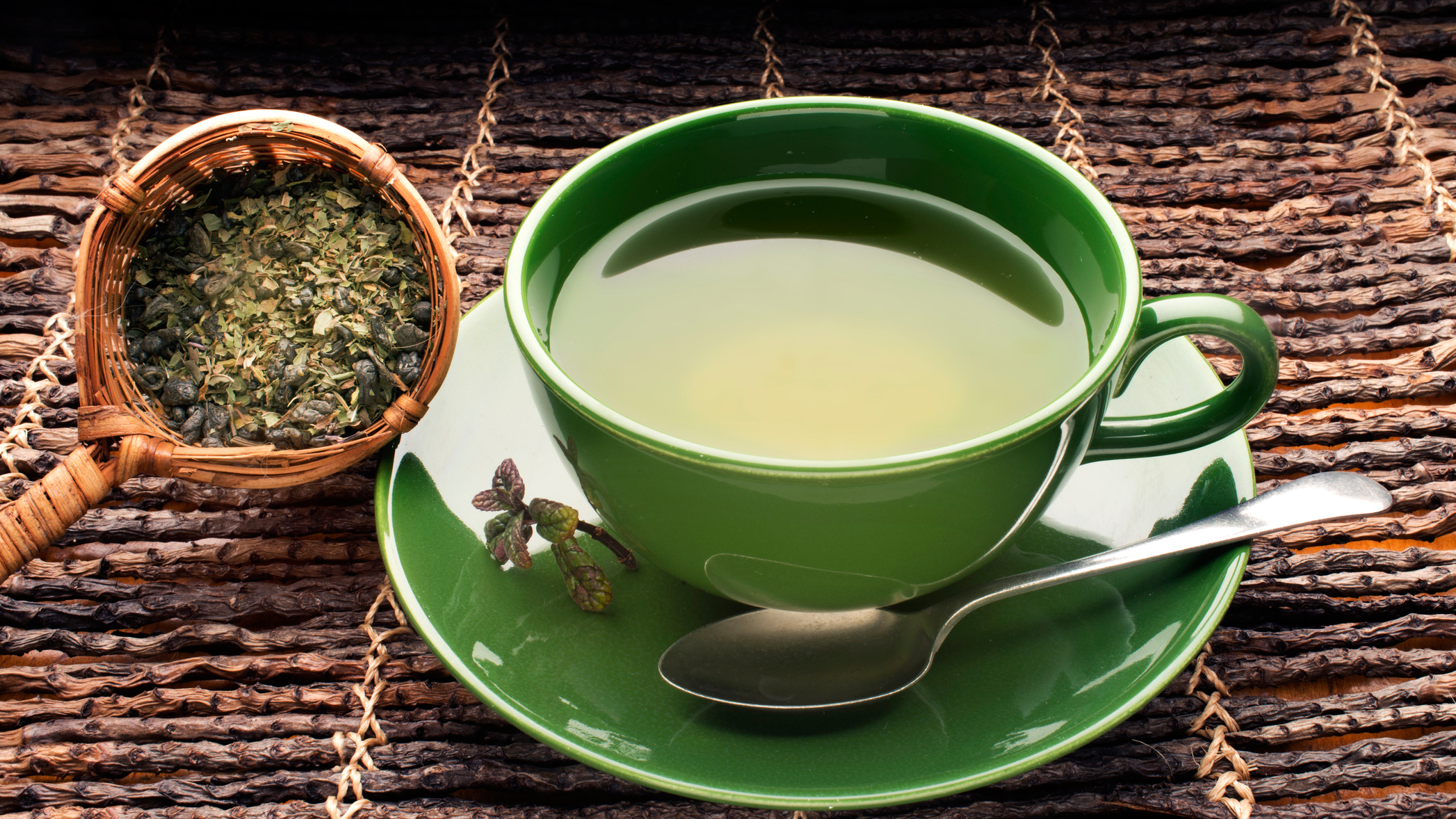Nutrition: THIS is the everyday drink which could save your life
An antioxidant found in green tea may increase levels of a natural anti-cancer protein, according to new studies


There's plenty of tasty, super-beneficial health drinks out there. The best blenders can blend fruit and veg together to create superfood smoothies out of ingredients such as apples, pears, kale and spinach. Coffee has been known to boost your metabolism and improve your focus in addition to working as an antioxidant. For for the sheer number of science-backed benefits, it's hard to top green tea.
Green tea has long been known to be good for us. One study, published in the Journal of Research in Medical Sciences, found people that drank four cups of green tea per day, for two months, saw a significant drop in body weight, their BMI, waist circumference and blood pressure. If you can make green tea a regular habit, you can curb the risk of obesity-related diseases such as diabetes and even drop some weight along the way.
The catechins in green tea – a natural chemical found in the plant – also act as an antioxidant. The term "antioxidant" is often thrown around in health circles, especially in relation to so-called "superfoods", without a clear definition. Essentially, "oxidisation" is a chemical reaction undergone by your cells to infuse them with oxygen, producing a kind of molecule called a "free radical".
Your body is designed to host a certain number of free radicals, but if too many are created, it can lead to your body undergoing "oxidative stress", which is said to "play a major part in the development of chronic and degenerative illness such as cancer, autoimmune disorders, aging, cataract, rheumatoid arthritis, cardiovascular and neurodegenerative diseases." At least, according to the International Journal of Biomedical Science.

What's this got to do with green tea? Well, green tea is chock-full of antioxidants, which as the name suggests, helps prevent excess oxidisation from occurring. This means your body could be less likely to undergo oxidative stress, reducing the likelihood of getting the diseases above, or lessening their impact.
You'll need to be especially vigilant with your diet as you get older, to ensure you keep up your antioxidant intake and remain in good general health (the best vitamins for women over 50 and the best menopause supplements can help with this). Fortunately, a few cups of green tea a day can help keep your antioxidants topped up. If you struggle to drink that many hot cups, you can always pop a green tea bag in one of the best water bottles for the gym and leave it in the fridge overnight, for an all-natural healthy energy drink.
One particular antioxidant in green tea may even help the anti-cancer effort more directly. A study published in the Rensselaer Polytechnic Institute has found an antioxidant found in green tea which may increase levels of p53, a natural anti-cancer protein, in the human body. This is excellent news, and could chance the way we treat cancer: however, until scientists extract and experiment with the hormone, it's best to put the kettle on and brew yourself a cup of tea.
Get the Fit&Well Newsletter
Start your week with achievable workout ideas, health tips and wellbeing advice in your inbox.
Matt Evans is an experienced health and fitness journalist and is currently Fitness and Wellbeing Editor at TechRadar, covering all things exercise and nutrition on Fit&Well's tech-focused sister site. Matt originally discovered exercise through martial arts: he holds a black belt in Karate and remains a keen runner, gym-goer, and infrequent yogi. His top fitness tip? Stretch.
-
 A Pilates instructor says this is the beginner-friendly core exercise everyone should try
A Pilates instructor says this is the beginner-friendly core exercise everyone should tryForget crunches, this is the perfect foundation move
By Alice Porter Published
-
 Prevent poor posture and release tension from sitting down with these four simple stretches from a yoga instructor
Prevent poor posture and release tension from sitting down with these four simple stretches from a yoga instructorThe daily poses he swears by, no matter what
By Alice Porter Published